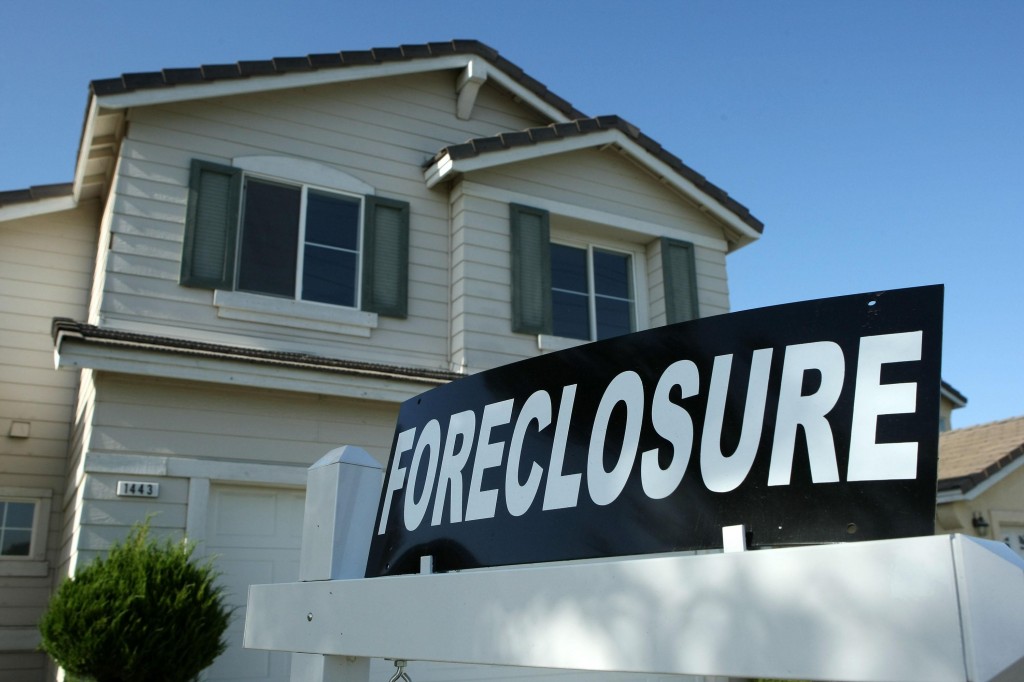Today, the 2nd installment in the Control Your Cash Open-Book Quiz. Yes, it’s several weeks late. That’s called sheer procrastination creating anticipation. Anyhow, the Open-Book Quiz works like so: we give you a scenario and a wad of theoretical cash, and you decide what to do with both. See the previous post in the series if this makes no sense. In fact, it almost certainly won’t.
You’ve found a house being sold short, and listed at $100,000. A tenant is already renting it, and is on a lease for the next year at $1000/month. Similar nearby houses sell for $100,000-$125,000. With 20% down, you can get a 3½% fixed mortgage.
Is this a good deal, or not?
Before you sign a contract, or commit the equally meaningful step of walking away from signing a contract, make sure you know exactly what you’re getting into. One way to do that is to always start with an investment policy. You can’t decide what to invest in until you know what outcome you’re looking for, and how much risk and volatility you’re willing to tolerate to get it.
Here we have a cheap house and cheap money, indicative of the historical double nadir we’re experiencing in the prices of both real estate and its financing. Even though today’s post is only a fictional exercise, the truth remains: Never has there been a better time to buy a house, especially as an investment. We’ve been saying this for years, but market forces (and governmental perversion of them) haven’t yet changed enough for us to recalibrate our opinion.
The 3rd selling point here is the immediate tenant. One who’s already on a lease is a perfect illustration of how vital cash flow can be to an investment that looks good on paper but might not work in practice. No matter how attractive an investment might be, you can’t build wealth entirely on speculation. You need monthly checks. Preferably sooner than later. That empty plot of land on the edge of a burgeoning town might octuple in value over the next 18 months. Or it might just sit there without anyone ever making an offer. Ceteris paribus, buy the property that promises you income while you’re waiting for effortless riches down the road.
To determine the value of this investment in comparison to others into which you might commit a comparable amount of money, you need to get to a common rate of return. Apples vs. apples and all that. That means it’s time to do a little math. In these examples, we’re going to calculate the value of the property based on its cash flow only.
Here are the terms and formulas you need to know:
Potential Rental Income. The shekels generated by the property in a theoretical, fully rented world. A world where you never have a vacant day, and in which every outgoing tenant is replaced by a fresh tenant later that evening. This world can only be approximated, never reached.
Vacancy Rate. The number of empty, unrented units in the property, divided by the total number of units. This only applies to properties with multiple units, of course. A 10-unit apartment complex with 8 rented units has a 20% vacancy rate. A 1-unit house has a vacancy rate of either 0 or 100%.
Gross Rental Income. Potential rental income x (1 – the vacancy rate.) Intuitively, this should make sense. Call (1 – the vacancy rate) the occupancy rate if you have trouble with abstractions.
Operating Expenses. All the costs of running the property excluding the loan payment.
Net Operating Income. Gross Rental Income – Operating Expenses.
(It’s obvious that those are minus signs and not em dashes, right? Oh God it isn’t, is it? Start again from the top.)
Cash Flow (before taxes and depreciation.) Net Operating Income – loan payments.
That’s the big one, the one that marks the difference between legitimate landlords and people who are just treading water until they’re forced to sell to someone who knows what she’s doing.
Now that you know how much cash will flow from your potential investment, you need to find out how it compares to other potential investments. By using these handy formulae:
Capitalization rate. Net Operating Income/(Purchase price + closing costs)
Cash-on-Cash return. Cash Flow/(Down payment + closing costs)
Run the numbers for those last two right now. We’ll wait.
Most investors focus on capitalization rate to the exclusion of everything else. On some level, capitalization rate (or if you want to sound knowledgeable, “cap rate”) is the closest analog to the rates of return you can expect with other investments. Mutual funds, etc.
Cash-on-cash return, which should be several times higher than cap rate if you did this correctly and checked your work, is the investor’s grand secret weapon. And testament to the wisdom of getting rich off OPM. Wait, that means it’s time for one last formula:
Other People’s Money. Your investment – your personal funds invested.
You can’t do this without leverage. Which is to say, without borrowing money from a lending institution and focusing it on an opportunity that promises you a greater capitalization rate than the interest you’re paying the bank. Capitalization rate measures cash flow of the property relative to investment. Cash-on-cash return changes based on how the buyer (that’s you) finances. The cheaper the financing, the higher the return.
In our above example, the cap rate is 7.77%. The cash-on-cash return is 15.10%.
Where else can you invest $26,000 and get that kind of return?
Wait. We’re not done yet. There are the tax benefits. You’ll be able to deduct the expenses of the property, plus depreciation (about $2,500 for this property) against the income you earn. Your tenant will be paying your mortgage payment, which means every month you’ll own a little bit more equity. Finally, the property might just appreciate it value. There’s a downside, but it’s outnumbered.
Note: The information we used appears on the attached spreadsheet. Should you be inclined to download it, it’s called an Annual Operating Property Datasheet. In the real world you’d get this information directly from the seller, or from your realtor if she’s any good. Failing that, go to your county assessor or tax collector website.






